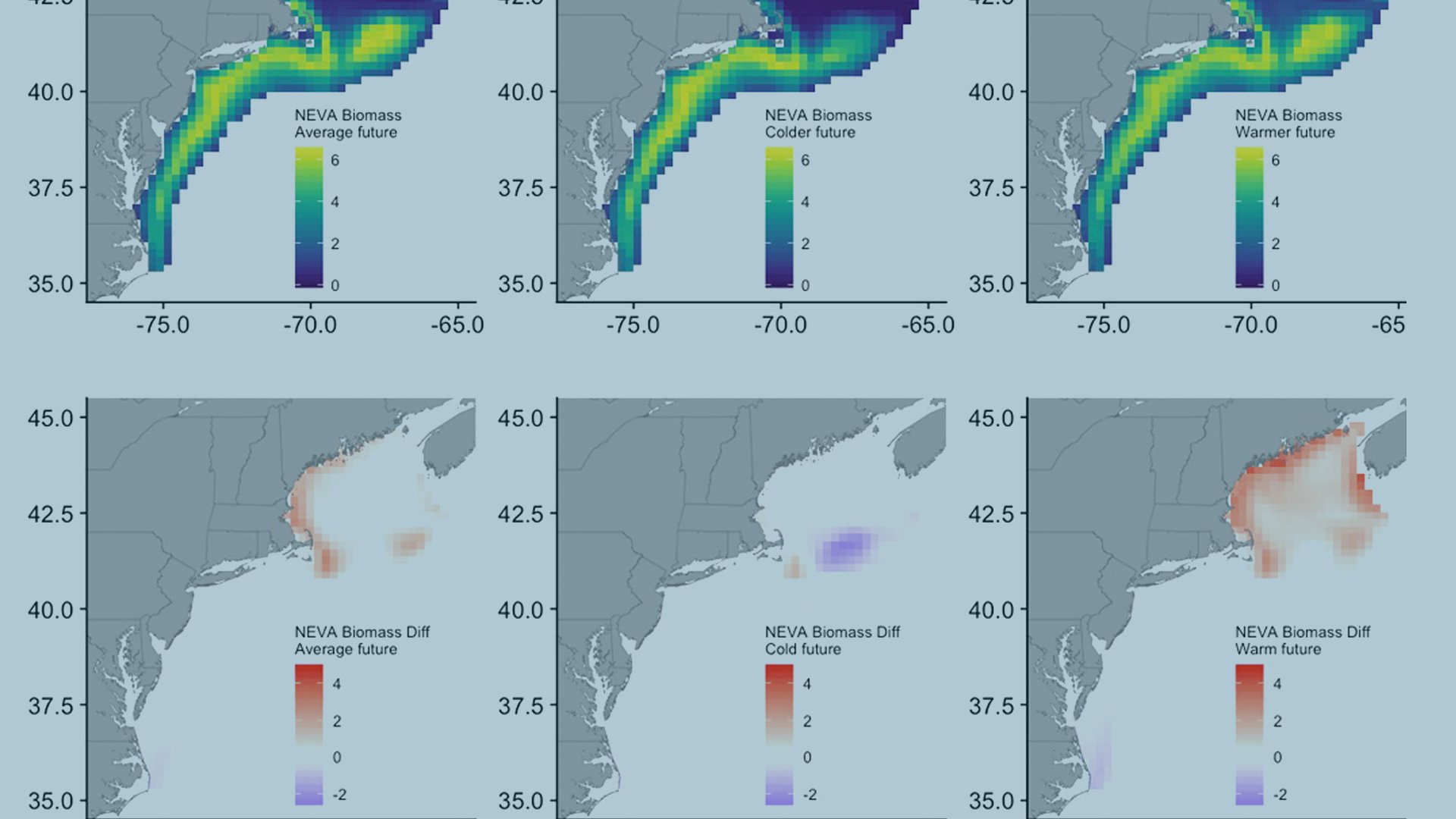Following Fish on the Move
Announcements | Jun 13, 2018
As marine waters off the Northeast Shelf have warmed over the past 30 years, with particularly rapid warming occuring in the past decade, fisheries in the region are feeling the impacts of climate variability and change.

Dr. Kathy Mills is leading a multifaceted project that will help coastal communities address these coming changes by assessing their social-ecological vulnerability to climate impacts.
Early in the project, Dr. Mills and her team assessed the vulnerability of regional fishing communities to climate-related changes in marine resources. Combining social and economic risks with likely climate scenarios, the group developed a model to project future distributions and ranges of commercially targeted species. Using this information in combination with convening workshops and trainings, the team hopes to help communities understand and adapt profitably to the changes coming their way.
To demonstrate the potential for this work at the community level, Dr. Mills identified four key fishing ports to act as case studies for more in-depth assessments: Point Judith, RI; New Bedford, MA; Portland, ME; and Stonington, ME. Her team worked closely with fishermen and other stakeholders in these communities to provide a detailed assessment of the economic and social impacts of projected changes, and to evaluate a range of adaptation strategies that may buffer these impacts.
These results will provide a way of comparing the future costs and benefits of different operational, investment, and management strategies. The implementation of these strategies, however, will vary from community to community. Interviews with fishermen in each port helped the team identify a range of factors that facilitate or constrain adaptation.
Final results of these assessments will be shared back with the four ports in the spring of 2019, and Dr. Mills aims to continue working with these communities to help them gather the information needed to make sound and forward-looking adaptation decisions.
National Recognition
In 2018, Dr. Mills presented the results of her climate adaptation and forecasting projects at multiple scientific, industry, community, and management meetings. This included at the American Fisheries Society, the International Symposium on the Effects of Climate Change on the World’s Oceans, and others.
Dr. Mills has also been selected as a Pew Marine Fellow to continue this work. This prestigious fellowship will support her research to understand how warming waters are affecting distribution shifts in fish and invertebrates, and to evaluate how fish populations will respond under various harvesting and climate scenarios. This information will help identify adaptation strategies that can both sustain fish populations and afford new fishing opportunities in the future.
The most exciting part of this work is the opportunity to support climate adaptation efforts by fishermen, fisheries, and communities in the region. It’s a great honor to have been awarded this fellowship, which will help us provide information to help fishermen and their communities.
Kathy Mills, Ph.D. Senior Scientist![the staff photo for Kathy Mills]() Kathy Mills, Ph.D. Senior Scientist
Kathy Mills, Ph.D. Senior Scientist



